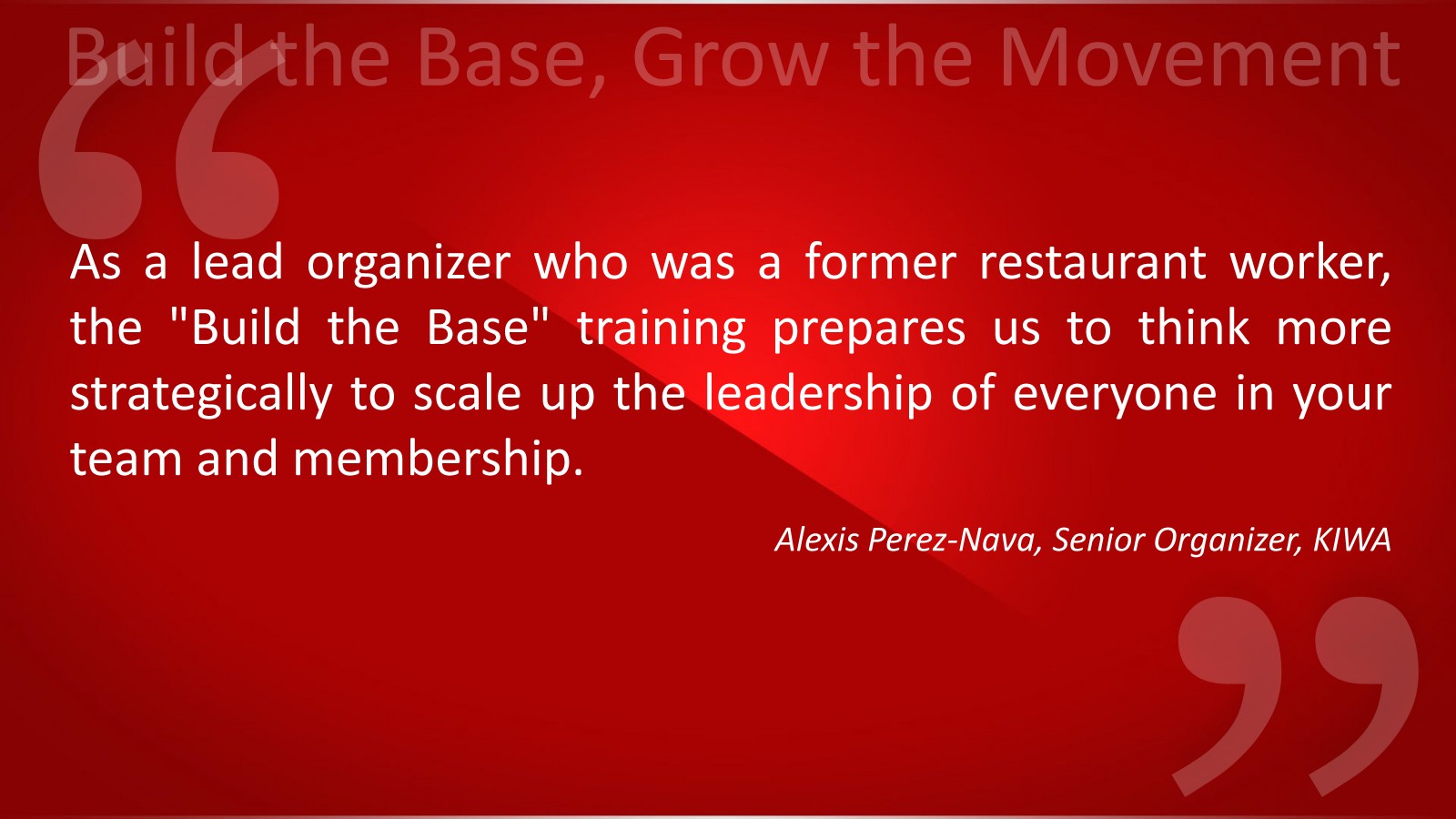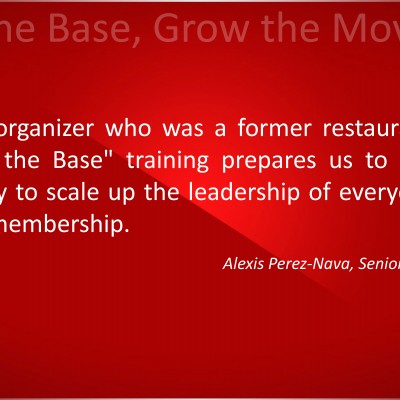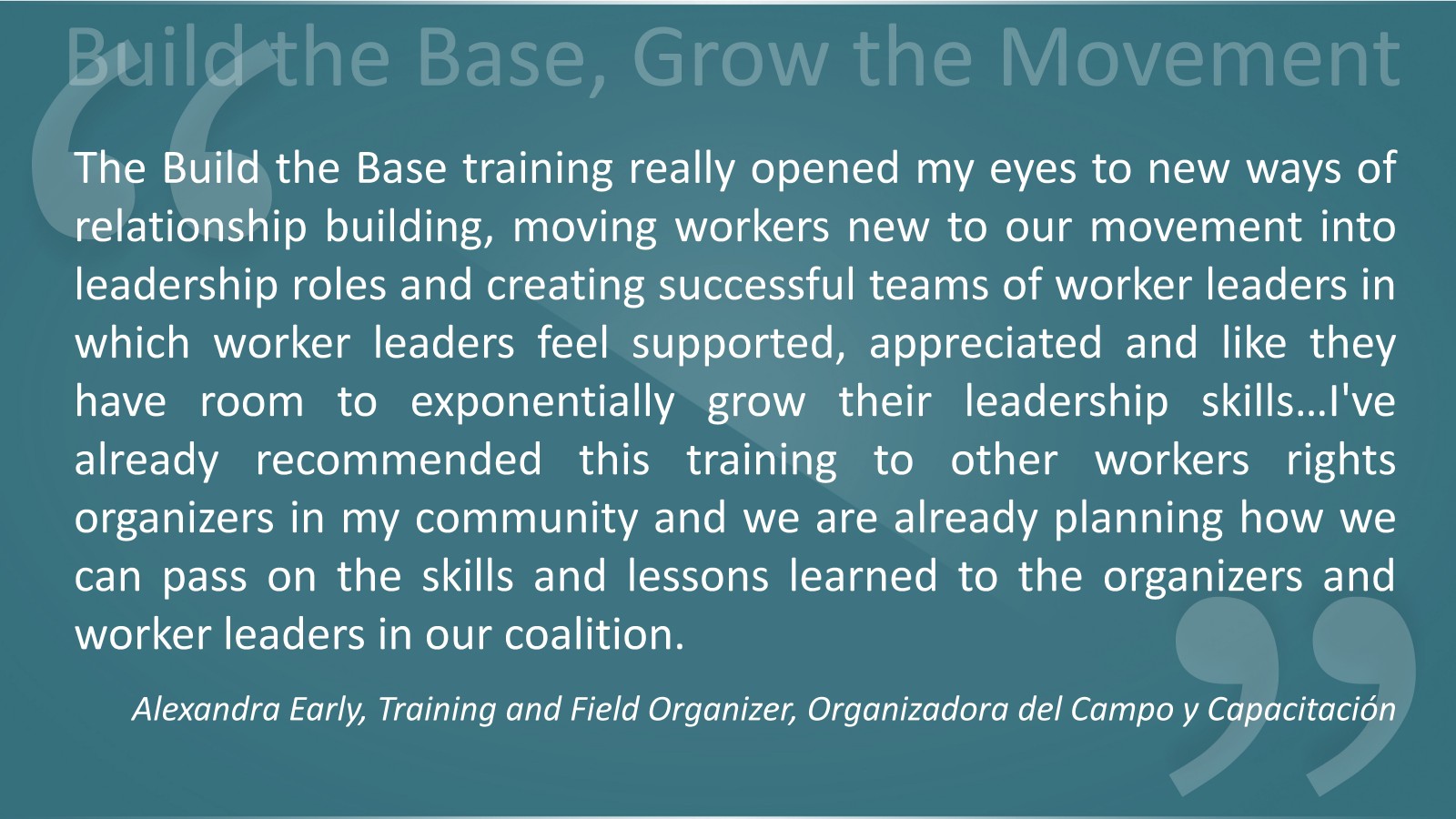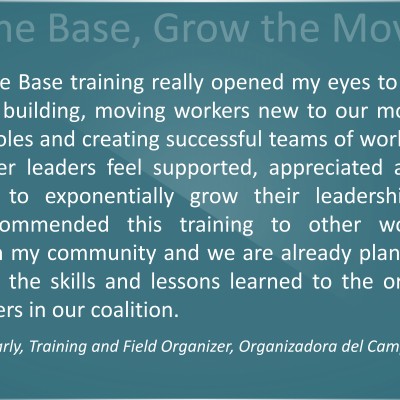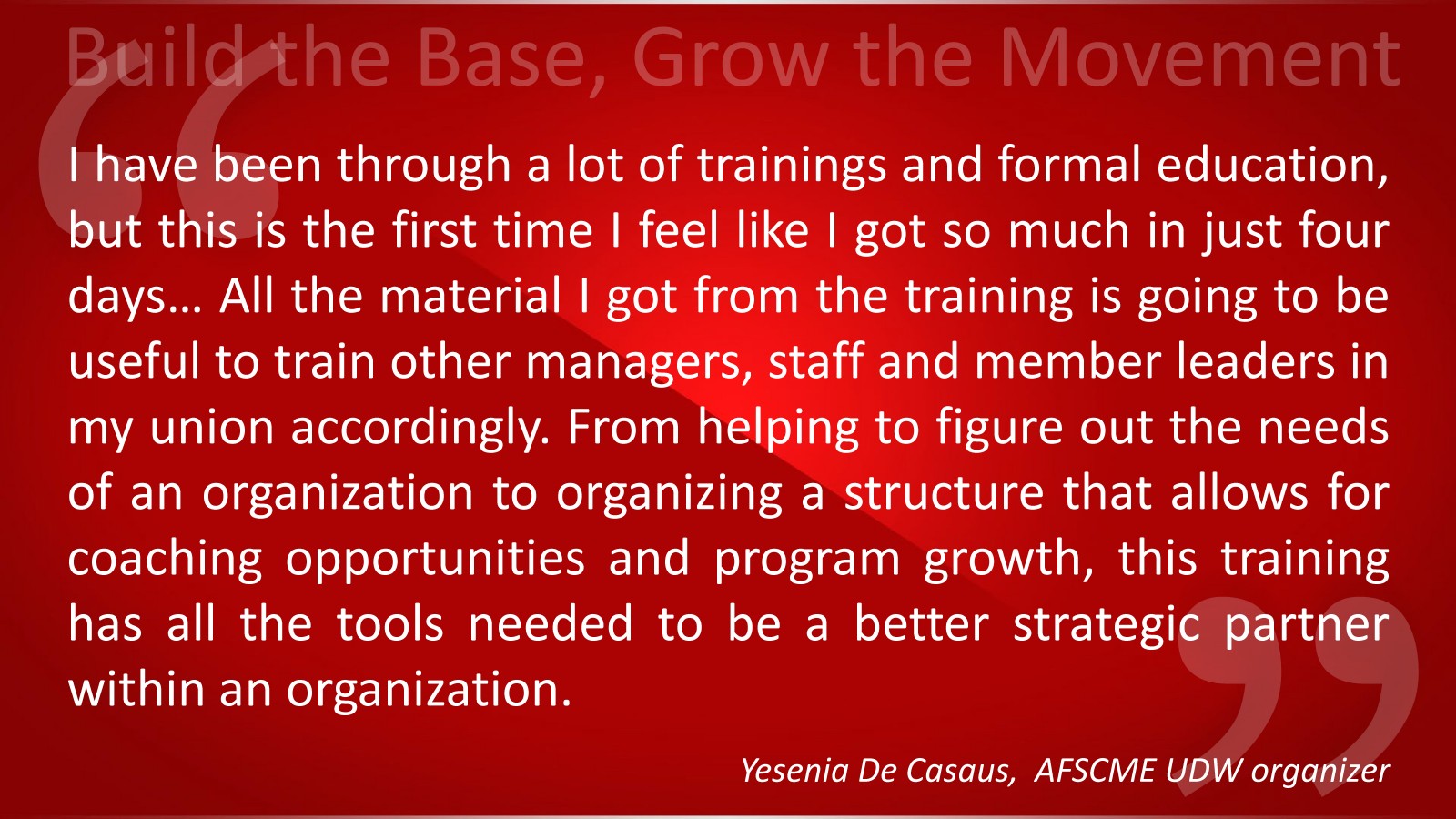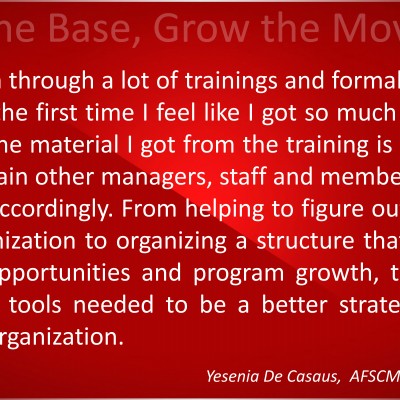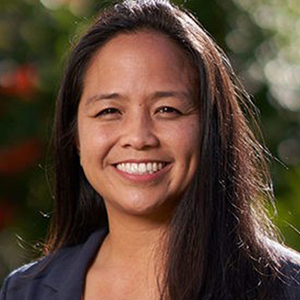
Build the Base, Grow the Movement supports learning, implementation and experimentation around a distributed organizing approach in the economic justice movement.
What is the Build the Base Model?
We are committed to empowering worker centers, unions, worker associations, and community organizations within the economic justice movement through innovative distributed organizing approaches. Building upon our foundational Build the Base, Grow the Movement frameworks and tools, we have become a dynamic hub that hosts a variety of experiments, trainings, and support systems. These initiatives—such as the new Worker to Worker Collaborative—support organizations in recruiting and involving their core constituencies to build the capacity to act for themselves. Build the Base trainings focus on what it takes to recruit and meaningfully engage organizations' members, facilitating participation and sustained involvement over time. Through trainings and coaching, we enable grassroots leaders to lead and help organizations build power at the scale necessary for deep and lasting social change.
We are grateful to have worked alongside these organization and more: LIFT (Labor Innovation for the 21st Century), SEIU 2015, SEIU International, NDLON, Restaurant Opportunities Center United (ROC United), Jobs with Justice, Pilipino Worker Center, People's Action, CTUL, Workers Defense Project, National Black Worker Center Project, WeCount!, KIWA Workers for Justice, Tennessee Immigrant & Refugee Rights Coalition (TIRRC), Step Up Louisiana, Georgia Stand Up, and Fe y Justicia Worker Center.
Why are We Committed to Distributed Organizing?
To grow our organizations, we must move beyond individual organizers holding all the relationships to one in which their principal role is to support teams led by volunteer leaders.
In our view, most social justice organizations’ strategy and communications far outstrip the base they have to accomplish their goals. Our leadership and membership bases are simply too small to win at the scale required to achieve urgent economic, racial, gender, immigration and climate justice goals and resist the existential threat to voting rights. Too often when “movement moments” occur, organizations are not prepared to absorb and involve newcomers. As a consequence, most people cycle out quickly.
Our mission is to help more organizations develop the capacity to scale beyond where most economic justice organizations currently find themselves. The fundamental goal of the model is to develop systems of support so that grassroots leaders are equipped to participate, recruit others and lead teams.
What is the Worker to Worker Collaborative?
The Worker to Worker Collaborative was founded to provide strategies, tools, and structures to unions aiming to scale up power by expanding their members’ involvement and leadership.
Rather than relying primarily on staff to drive forward organizing efforts, the most effective and innovative unions in the world are recruiting and developing worker leaders capable not only of coalescing their co-workers, but of taking on much of the work normally reserved for staff, such as initiating campaigns, training others, and leading teams of volunteers. Precisely this type of new distributed organizing model is needed to help working people and their organizations effectively confront entrenched corporate power and our society’s deepening crises.
Re-orienting staff and union resources towards training up and supporting wide numbers of worker leaders is an essential step towards lowering organizing costs, increasing union democracy, and putting the movement back into the labor movement. By leaning on digital tools and a “Learn-Do-Teach” spirit, unions can transform their internal practices — and exponentially expand their impact — by connecting members to other members, holding regular mass trainings to spread time-tested deep organizing tactics, and by providing workers the tools they need to start self-organizing.
The Collaborative — a project of the Organizing Department of the Workplace Justice Lab-Rutgers University supported by the Emergency Workplace Organizing Committee — seeks to spread these scalable best practices by providing trainings and consulting services to any union looking to incorporate worker-to-worker practices and structures. W2W is based on the work of Eric Blanc, whose book We Are the Union: How Worker-to-Worker Organizing is Revitalizing Labor and Winning Big is out with UC Press in February 2025. To contact Blanc about potential collaboration with W2W, you can reach him at ebb57@smlr.rutgers.edu.
